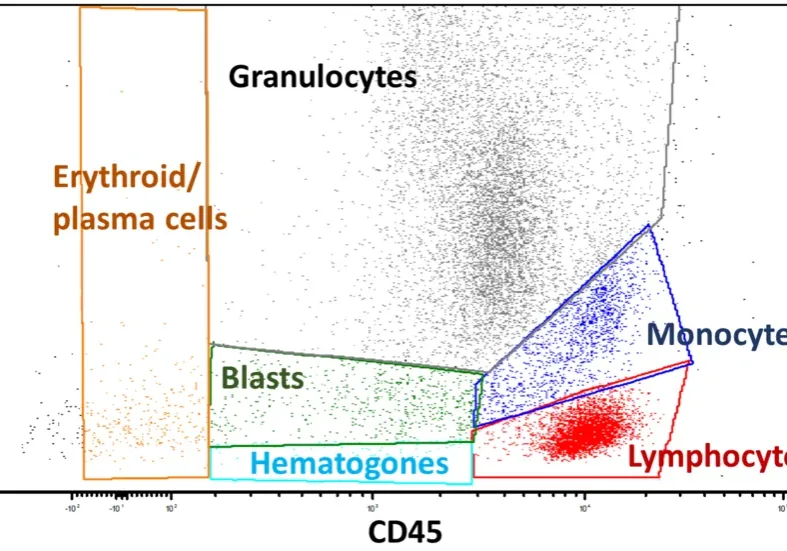Discover my portfolio showcasing my contributions in the fields of life science, healthcare, and other industries. With expertise in data analysis, statistical & mathematical modeling, and computational methods, I have tackled various challenges and delivered impactful solutions. From analytical method validation to AI model development and statistical analysis, explore the diverse projects I have been involved in.

A biotech R&D team spent many hours per assay, manually annotating the results. The manual step capped throughput and blocked full automation of their process.
In a few weeks I built a prototype, based on a custom ML algorithm, that reached production-ready agreement with senior scientists on the highest-volume assays.
The client has since built an internal team on top of my prototype to scale across all assays.


Most of the precision medicine pipelines have a predictive software component, and that component needs approval from medical authorities. The approval process usually requires to perform an analytical method validation of the software.
For multiple precision medicine companies, I designed and implemented the technical part of those analytical method validation plans, leading to authorities approval. The plan included design of experiments, sample characterization, and developing a system for determining the analytical method characteristics of the predictive software.
The original reporting system of this biotech company was very basic: a script that was periodically to compute a handful of summary statistics, and wrongly-derived estimates of the performances of a prediction model running in production.
I designed and implemented a production reporting system computing weekly performances (both via tables and visualizations) and comparing them with the previous weeks.
The reporting system PDF output became a staple document for the leadership team and the Board of Directors (BOD); a member of the BOD requested to meet me to deep dive into the report.


This biotech company had in production a sample classifier (phenotype predictor) that they wanted to improve. The classifier was based on probabilistic modeling. Due to the lack of annotated samples, it was not possible to fine-tune it or adopt a supervised-learning approach. Therefore, I focused on optimizing the production process to make the samples more suitable for the classifier: the more the data meet the hypotheses behind the probabilistic model, the better the classifier can work. This lead to a 25% increase in the performance of the predictive model.
Both R&D and Operation units of a biopharmaceutical company where performing some crucial statistical analyses via manually filling out a template spreadsheet. Both units wanted a more robust way to perform those analysis, and extend the scope of the tool to additional scenarios with missing data; furthermore, the Operation unit needed a GxP-compliant solution to automate their workflow.
Thanks to frequent interactions with those units I managed to extended the statistical method for their needs and develop the backend code of the software, which was later adopted by both units.


To ensure the accuracy of a medical decision-support software, I conducted comprehensive testing. This involved generating artificial patient profiles, processing them with the software, and reviewing the output with medical personnel. I also performed property-based testing, comparing the software's output with expected results for a wide range of cases outlined in the software specification.
In a biotech company facing challenges with sample collection machineries, tracing the root cause of anomalies can be a daunting task, especially in the absence of data about the collection pipeline.
I developed an advanced anomaly detection dashboard, leveraging a statistical approach to identify the sources of anomalies: by comparing samples collected from different parts of the machineries, we enable precise identification of defective components. This real-time dashboard provides R&D and production teams with invaluable insights to optimize production and the troubleshooting processes.


I spearheaded the development of an advanced machine learning pipeline designed to optimize the selection of genetic loci critical for phylogenetic analysis of microbial strains. This innovative solution enabled precise identification of the most informative genetic markers, improving the biological understanding of the key properties of the strains.
As part of a prestigious EU project, I developed an advanced causal discovery software designed to infer causal relationships from tabular data and feature correlations. This software enables the identification and estimation of causal effects, providing valuable insights into underlying data structures.



I helped a B2C company improve their budget estimation process for technological upgrades. By translating the business challenge into an analytical challenge, designing and developing components of the solution, and leading the project, we achieved a more accurate budget estimation method. The solution was approved by the technical leadership board.
I assisted a company in optimizing the formulation process and documentation writing for remaking materials by using novel ingredients. This resulted in a 20% reduction in manual operation work for ingredient and concentration selection. The time saved led to lower costs and faster time to market, making the overall operation more cost-effective.


A manufacturing company enlisted my expertise to validate their object-measuring system. I developed an analytical framework to measure the quality and consistency of the measurements. This framework enabled the identification of poor-performing settings and facilitated system improvements.

As a research fellow at the University of Exeter, my work focused on using quantitative methods for the study of antibiotic resistance. This involved the use of mathematical modeling, bioinformatics, and statistical data analysis.
Key Contributions
- Enhanced an existing Ordinary Differential Equation (ODE) mathematical model of an experiment in a flask and extended it to a Partial Differential Equation (PDE) model to accurately simulate experiments conducted in Petri dishes.
- Find optimal antibiotic deployment in hospitals through control theory
- Developed a semi-automated processing pipeline for efficient construction and annotation of bacterial genomes.
- Designed and implemented user-friendly bioinformatic pipelines to process and analyze bacterial DNA sequencing data. Tasks included identifying genetic variants and their frequencies, evaluating gene copy numbers, and conducting statistical analysis (e.g., t-tests, G-tests, ANOVA).
During my doctoral studies, I focused on developing computational methods for metagenomic data analysis. This involved the use of machine learning, statistical modeling, and bioinformatics techniques. I was affiliated to the Data Science group led by Tom Heskes, and I collaborated with the Microbiology Department (Mike MS Jetten) and the Nijmegen Centre for Molecular Life Sciences (Sacha AFT van Hijum).
Key Contributions
- Developed an algorithm for taxonomic annotation of metagenomic data through combinatorial optimization.
- Created a classification algorithm for short strings (DNA reads) based on combinatorial optimization.
- Conducted feature engineering for the classification of short strings using statistical modeling and domain knowledge.
- Investigated biases and underrepresentation of species in metagenomic data, employing statistical modeling and bias variability analysis.



